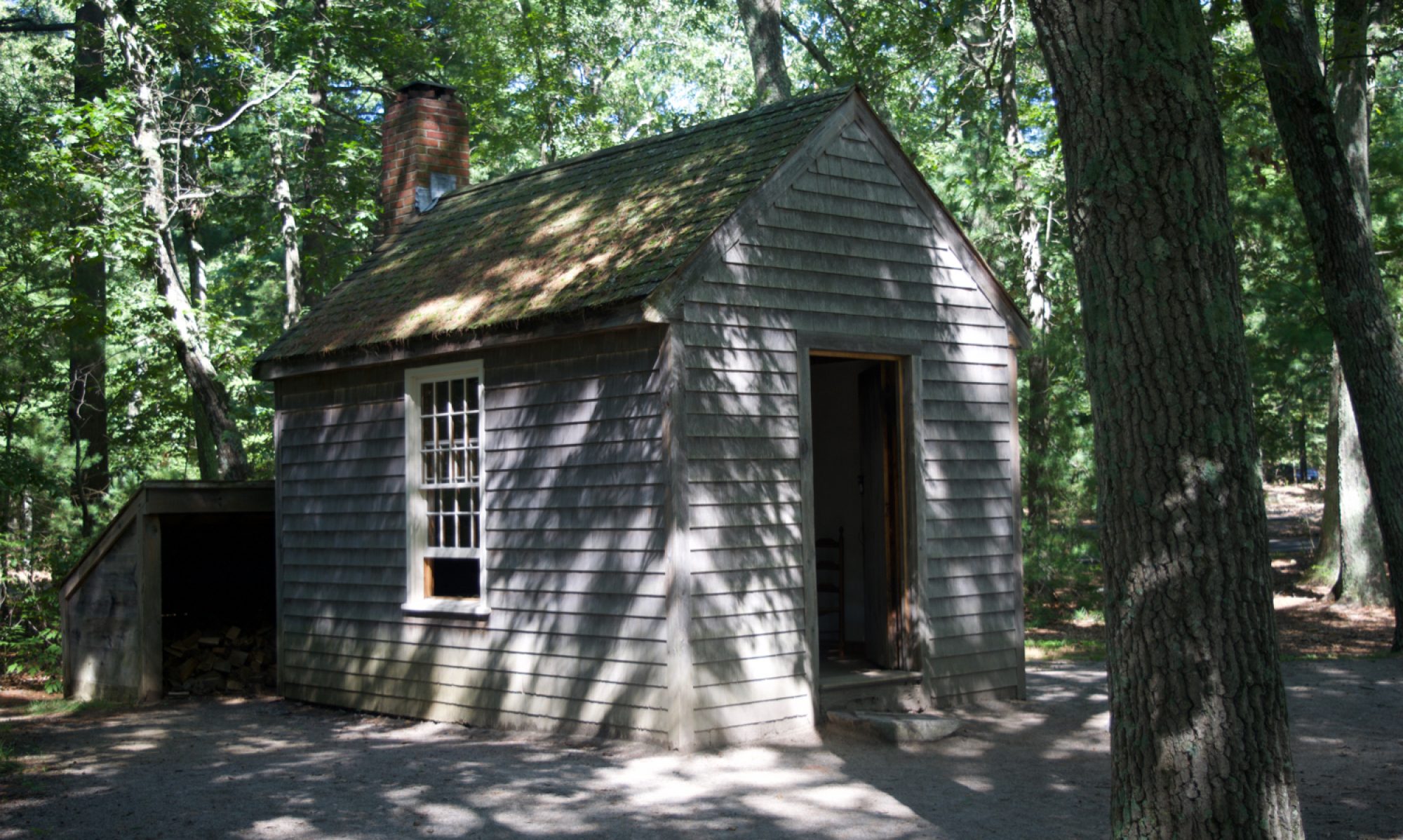In 1845 Henry David Thoreau built himself a hut beside Walden Pond in Massachusetts and started the process which led to “Walden; or, Life in the Woods” in 1854. This book has gone on to become a classic of American literature, held up by advocates of self-reliance, resistance to the power of the State, naturalism, and conservation; and studied by generations of school children. Even in the UK, it’s often quoted, with its mixture of philosophy and the outline of Thoreau’s efforts to lead a self-reliant life from the land around his hut.
I’ve been meaning to write about Walden since I started this blog, but the more I thought about it, the bigger the task became. Walden is a treasury of ideas connected to hutting and nature, and a single post or even a sequence written at the same time won’t do it justice. So instead I made a page about Walden and will make blog posts as I add material to it. For now that page has a collection of key passages I selected while reading the book, with a focus on hutting.
A few of them give you a flavour of his intentions:
When I wrote the following pages, or rather the bulk of them, I lived alone, in the woods, a mile from any neighbor, in a house which I had built myself, on the shore of Walden Pond, in Concord, Massachusetts, and earned my living by the labor of my hands only. I lived there two years and two months. At present I am a sojourner in civilized life again.
Near the end of March, 1845, I borrowed an axe and went down to the woods by Walden Pond, nearest to where I intended to build my house, and began to cut down some tall, arrowy white pines, still in their youth, for timber.
I went to the woods because I wished to live deliberately, to front only the essential facts of life, and see if I could not learn what it had to teach, and not, when I came to die, discover that I had not lived.
Our village life would stagnate if it were not for the unexplored forests and meadows which surround it. We need the tonic of wildness—to wade sometimes in marshes where the bittern and the meadow-hen lurk, and hear the booming of the snipe; to smell the whispering sedge where only some wilder and more solitary fowl builds her nest, and the mink crawls with its belly close to the ground.
Walden Pond is now a Massachusetts state park and visited by hundreds of thousands of people each year. There is a reconstruction of Thoreau’s hut near the car park and the footprint of the original hut is also marked out.
As well as the obligatory Wikipedia article, there’s also an excellent episode of Melvyn Bragg’s “In Our Time” radio programme dedicated to Walden.




One Reply to “The hut at Walden Pond”